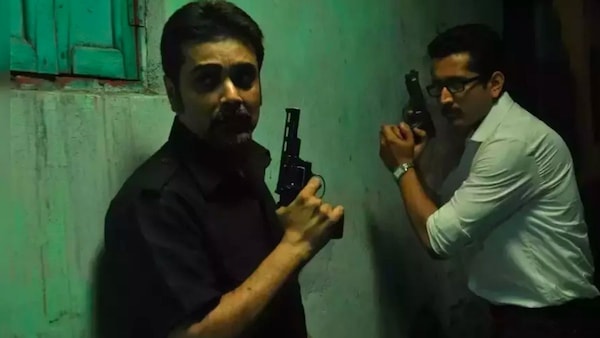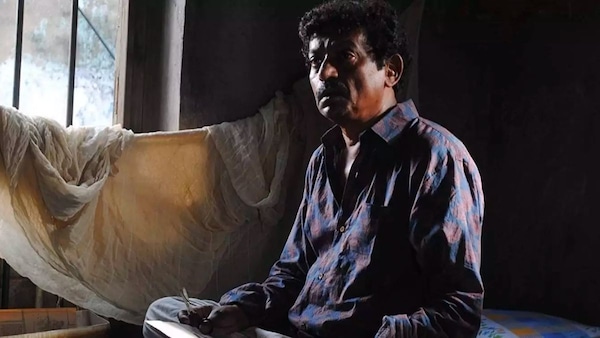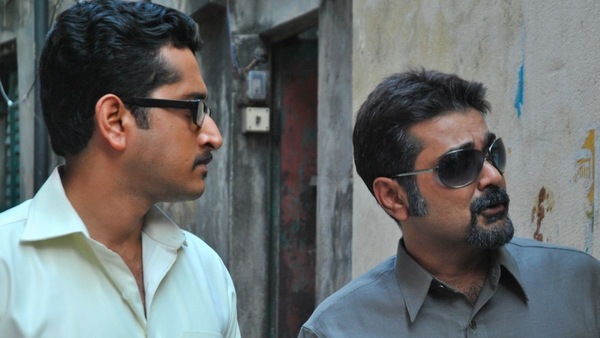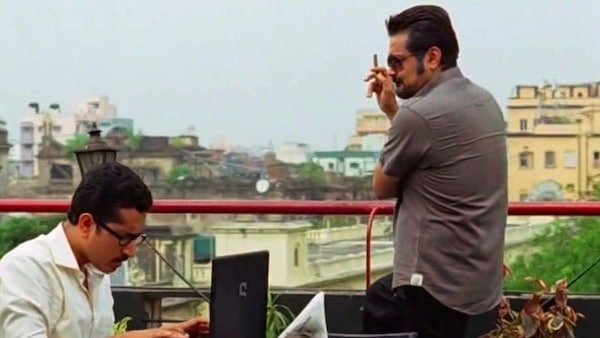Baishe Srabon turns 11: Srijit Mukherji’s gritty thriller was a love letter to Kolkata’s cacophony and chaos
As Prosenjit Chatterjee’s murder mystery turns a year older, here’s a deep dive into what made Srijit Mukherji’s film a compelling watch

Last Updated: 05.13 PM, Dec 28, 2021
Srijit Mukherji's debut feature Autograph was swiftly followed by Baishe Srabon featuring Prosenjit Chatterjee, Parambrata Chatterjee, Raima Sen, Abir Chatterjee and Gautam Ghose.
The gritty murder thriller follows a string of serial killings where the perpetrator leaves behind verses from noted Bengali poets’ works. The man’s victims are the marginalised sections of society. He preys on beggars, homeless nomads, prostitutes and the like.
In what seems like a loose adaptation of Robert De Niro-Al Pacino’s cop feature Righteous Kill, Baishe Srabon is an ode to Calcutta (yes, you read that right, not Kolkata). Soumik Haldar’s incisive lens captures narrow, dark alleyways of the city, that stink of strewn garbage and considerable regret. Mukherji builds a world where the killer hunts down society’s lowest rung and mercilessly bludgeons them to death.
With each victim he gains, he neatly places a poem that alludes to the manner in which he killed them. Abhijit Pakrashi (Parambrata Chatterjee), a young, conscientious police officer is assigned the case but is also asked to take inputs from a now-banished maverick cop Prabir Roychowdhury (Prosenjit Chatterjee).
Abhijit and Prabir are spectral opposites. While Abhijit toes the line of propriety, Prabir is all about mouthing the choicest of expletives and gruffly barking orders. Abhijit demure nature is the perfect canvas for Prabir’s rough-it-out outlook.
Prabir’s ruthlessness is courtesy his ideology that every criminal ought to face punishment. His misconduct trial even has his defence attorney desperately pleading ‘temporary insanity’. But alas, that does not work and he is dishonourably discharged.
Prabir’s old-world tactics of playing bad cop come in stark contrast with Abhijit’s more rational approach to crime. Yet, Prabir’s whip-sharp sense of judgement and deduction skills aid the investigation considerably. Mukherji places these two males – one, a very obvious alpha while the other is a comfortable beta – and makes them mouthpieces for his commentary on masculinity.

Amidst these two men is Nibaron Chakraborty (played by a brilliant Ghosh who came down on celluloid after almost three decades). Nibaron’s romance with language and poetry is crucial in his quest for finding meaning in the daily humdrum of life.
An embodiment of a forgotten world where language, politics and art thrive beautifully, Nibaron is adroit at extracting the creative juices out of each written word. A self-proclaimed poet, he continues to maintain that his works are to be published in the upcoming boimela (Kolkata’s famous bookfair).
His world is as much immersed in books as it is detached from the realities of life. He wanders through Kolkata streets dimly lit with flickering street lamps, aimlessly sits at abandoned platforms and ruminates on life, and most importantly, has a nasty temper regarding the present state of affairs in the city.
His mindless drivel is often comfortably ensconced within scenes where Mukherji clearly wants to use him as a Macguffin to further his web of mystery.
Baishe Srabon was also an unwitting commentary on the banality of present-day lives, somehow surviving in the dingy lanes of a city grappling with an identity crisis. The film reflects a microcosm of precisely this. Abhijit’s vehemence in trying to make Amrita (Raima Sen) shed her anglicised version of Bangla, followed by her vehement pushback, is an oddly funny nerve that the filmmaker wanted to trigger.
Through their relationship, Mukherji builds a space where the old, traditionalist ways meet the modern, yuppy life. Amrita’s go-getter life on the fast lane is something Abhijit struggles to get on board with. And within this tension, forms an irresistible bond that disallows either of them to completely walk away from the other.
Prabir’s motives and actions may seem unjustified to some viewers when watching the film for the first time. But, he begins getting more relatable once the story seeps into the viewers’ minds properly. Mukherji peppers the narrative with numerous Easter eggs to explain his protagonist’s transgressions and need to act out in society.
His demeanour is unapologetic on the surface, but beneath that veneer, it is only despair and isolation. This inner quietude and loneliness push him to encourage Abhijit to fix his issues with Amrita and look beyond the apparent difficulties. In Prabir then, both Abhijit and Amrita find an enthusiastic elder brother, who patiently hears them fight and then laugh indulgently at their lover’s spat.

Mukherji’s world-building is not only precise, it’s also relatable. His passion to depict the congested by-lanes and forgotten crevice-like spaces of North Calcutta are equally brilliant as are his shots on sprawling South Calcutta properties, and the lush green grounds of Maidaan.
Within a decade of the new millennium, Kolkata was a nexus of young minds desperately trying to make it big in the world (a necessity that also pushes most of them outside the city). But for Mukherji, this was the same city that breathed life into his world of gore and mystique.

Anupam Roy’s lilting tracks buoy the entire narrative, becoming pithy additions to the situations they are placed within. So a ruminative montage on separation and loss is highlighted by Gobhire Jao, compelling audiences to go down the memory lane, or even an Ekbar Bol typically places the romantic angst front and centre of the plot.
Baishe Srabon is one of the few well-made murder thrillers out of the Bengali film industry. Mukherji’s attempts at developing a brisk and slick plotline truly captured the spirit of a city bubbling with potential.
Watch the film here .

